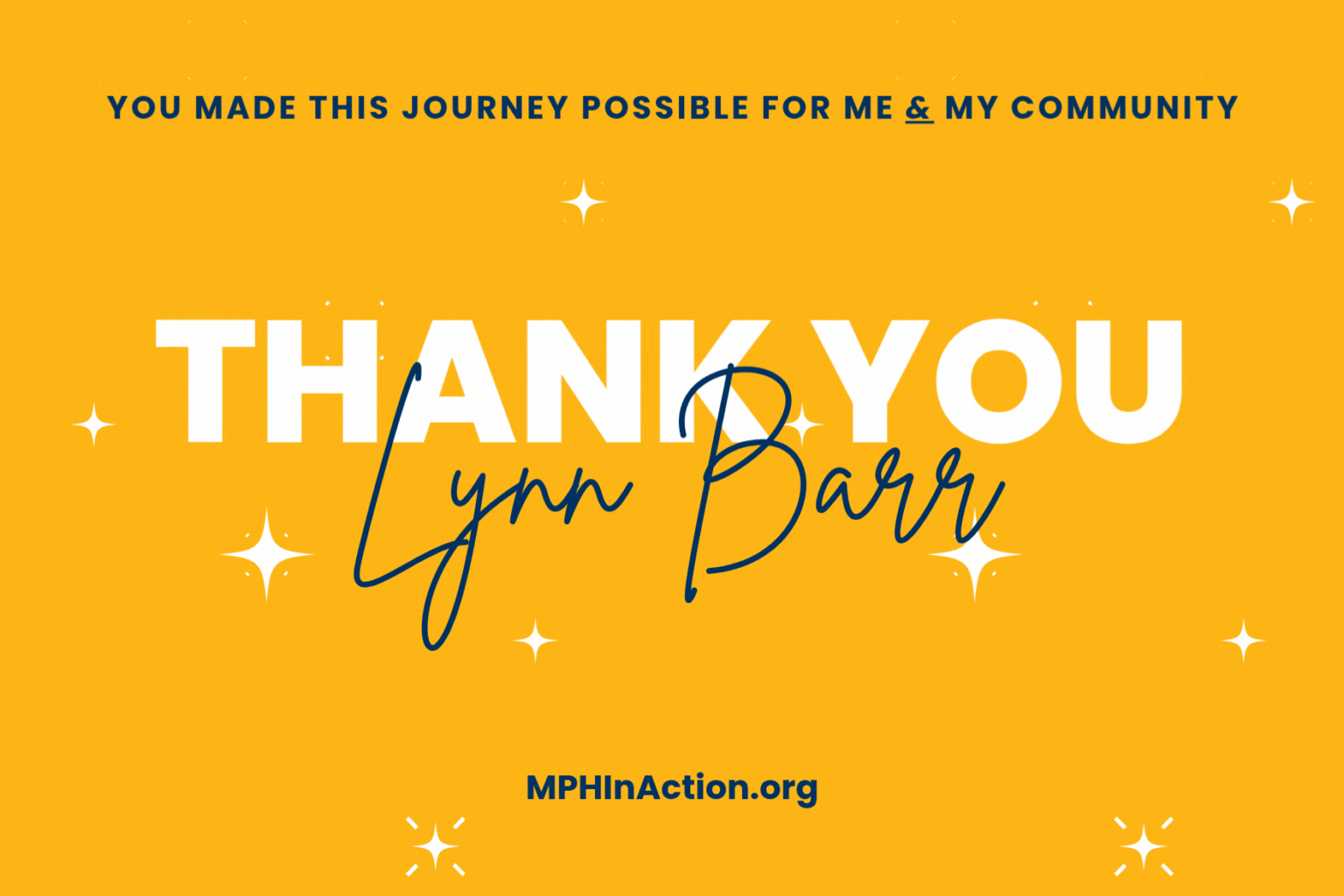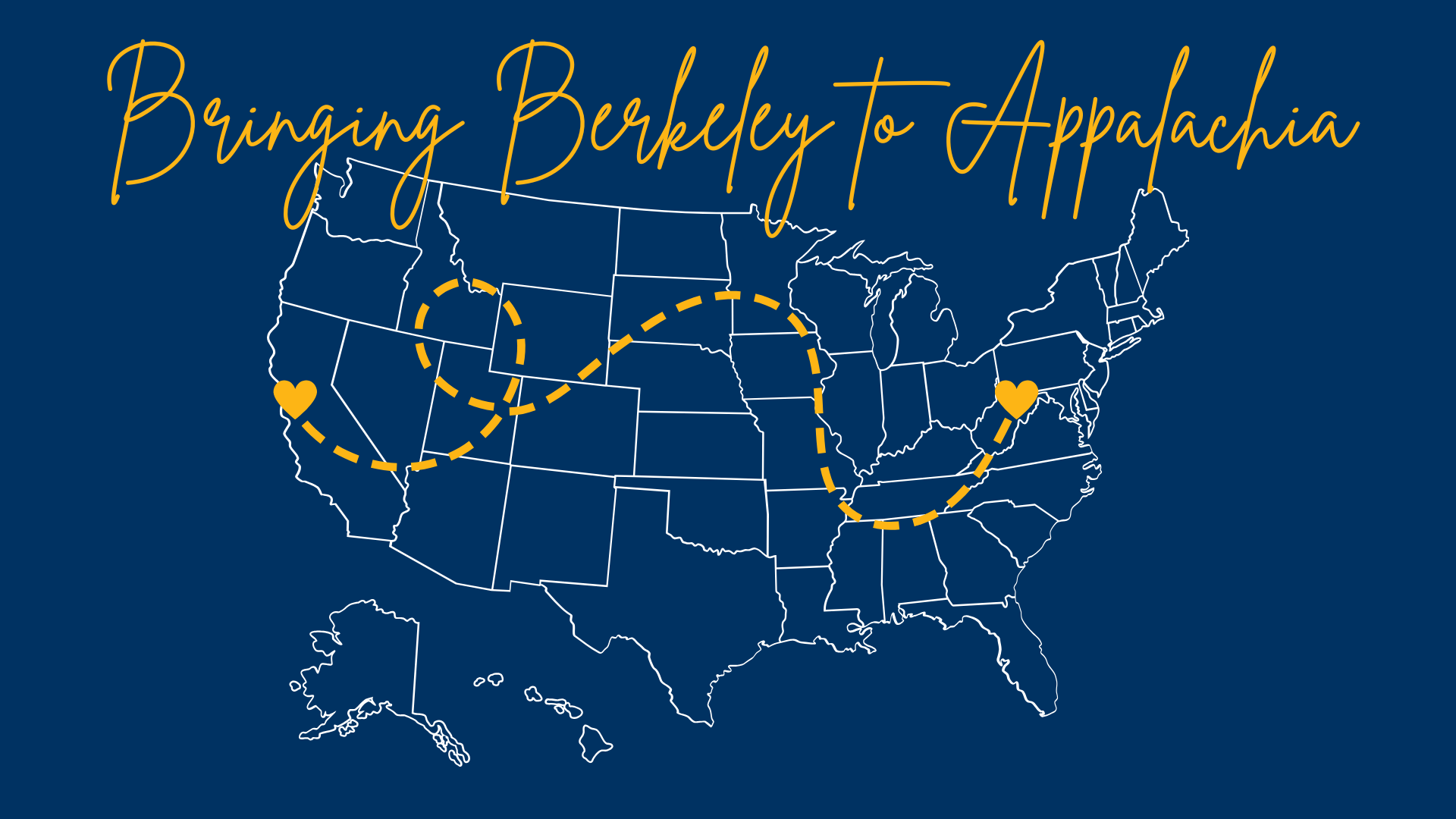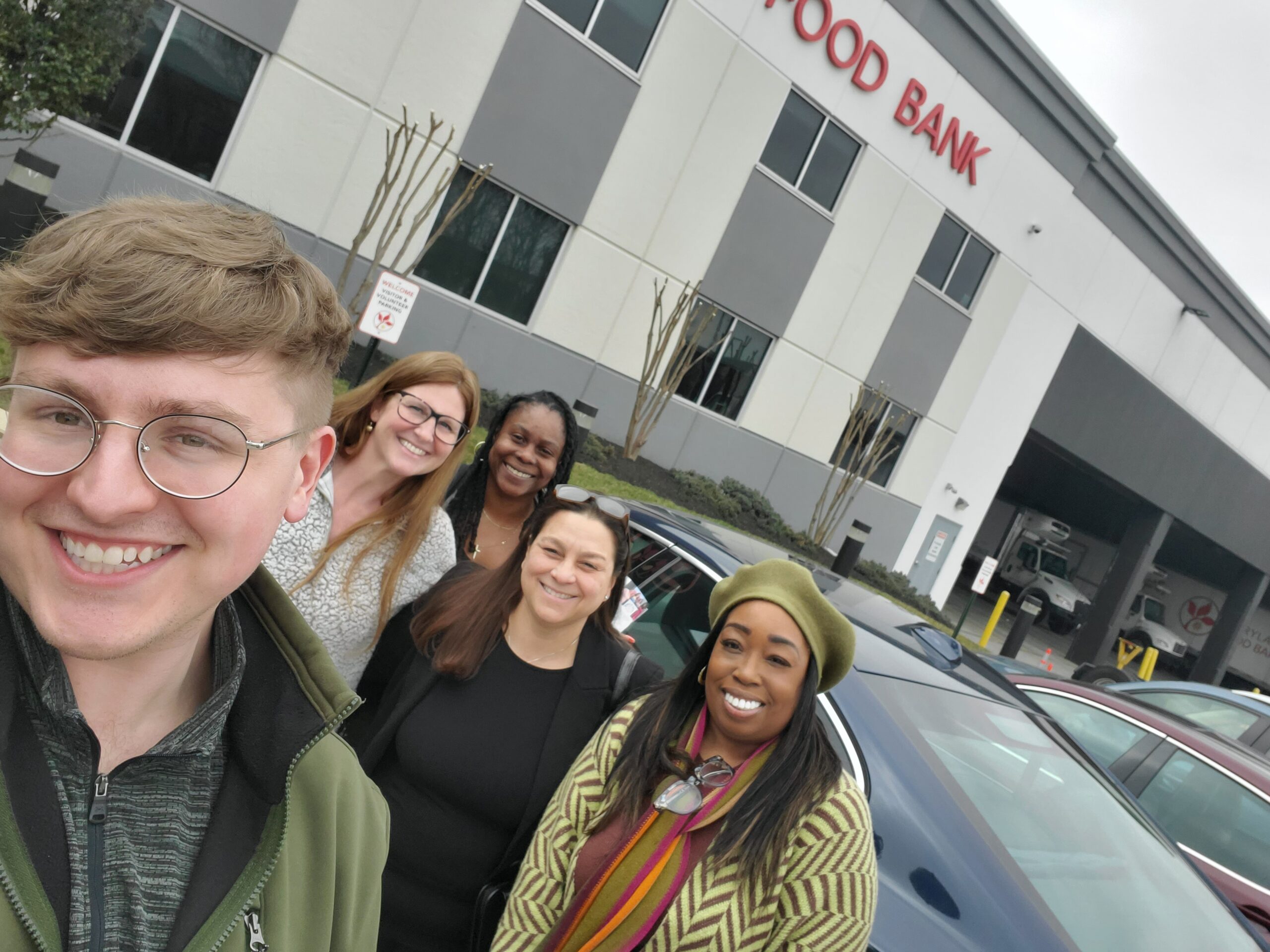The concepts of “learning, unlearning, and co-learning” have been pivotal in my personal and professional growth, helping me discover my own “stretch zones” to improve my contributions to rural public health. Under the guidance of Dr. Evan vanDommelen-Gonzalez and many other brilliant, inspiring, and transformational faculty at Berkeley’s School of Public Health, I’ve been challenged in ways that have shaped my journey and future contributions to public health in rural Appalachia.

This journey, and the lifelong impact it will have on my work and community, is possible only because of the extraordinary generosity of Lynn Barr, whose support has made it possible for me to pursue my dream of advanced education. As a low-resource, Appalachian student, my path began with the Garrett County Community College Scholarship Program (featured in Garrett County’s RWJF Culture of Health story). Today, I’m proud to be an OOMPH student at the University of California, Berkeley – an opportunity I never imagined possible growing up as the grandson of a company coal miner. I am deeply grateful to the remarkable individuals who have shaped and inspired this transformative journey.
Further, my partner in progress, Shelley Argabrite, has been instrumental in deepening my appreciation for the power of public health. She continues to be my trusted counterpart in these and every initiative I undertake to advance population health outcomes across Appalachia. We are a true team in every sense, with each accomplishment as a shared journey grounded in trust, integrity, and a steadfast commitment to health equity in rural Appalachia.
The education and experience I’ve gained through Berkeley’s OOMPH program have had a profound and far-reaching impact on the communities I serve throughout Appalachian Maryland and West Virginia.

Here are just a few of the most meaningful outcomes so far:
- Garrett County has been awarded $348,915.14 in competitive grant funding to strengthen food security initiatives and provide seed funding for a regional community food bank. A key component of the application focused on the intersection of health and social behavior, drawing heavily on concepts from Dr. Evan vanDommelen-Gonzalez’s 200G course, including the use of socio-ecological models, community-based participatory research (CBPR) methods that emphasize returning assets to community stakeholders, and the development of data-driven narratives through course assignments.
- The recent Garrett County & Surrounding Region Community Health Needs Assessment (CHNA) integrates key concepts from multiple OOMPH courses, including Dr. Evan vanDommelen-Gonzalez’s 200G course, Dr. William H. Dow’s 226CW course on the Economics of Population Health, and Kimberly MacPherson’s 227Aw course on Health Care Finance. These frameworks were especially influential in analyzing findings related to jobs, wages, and economic development, as well as informing upcoming strategies for population health resource allocation and budgeting in a complex environment.
- The Garrett County Food Bank (launching soon as a wraparound service agency known as 360 Access Hub) – a collaborative initiative between the Garrett County Health Department, Garrett County Community Action, and Maryland Physicians Care (a Maryland Managed Care Organization) – is progressing rapidly, fueled by a strategic infusion of funding. This momentum is grounded in concepts from Irina Titova’s 220M course on Health Policy Methods, particularly around community activation and data-policy integration, as well as practical experience gained through the applied learning component of Berkeley’s OOMPH practicum. This course, in particular, has helped me build on my background in informatics to effectively leverage policy as a tool for improving population health outcomes.
Here are a few projects on the horizon:
- We’re actively exploring an exciting new partnership with CCPHIT and the Berkeley Public Health Informatics program with the brilliant Irina Titova to expand informatics capacity at Local Health Departments (LHDs) across Appalachia and the State of Maryland. With plans to launch this co-learning journey at the start of the upcoming fiscal year, this initiative presents a valuable opportunity to connect students with real-world LHD experience while fostering a stronger, collaborative informatics network of future public health leaders.
- Additional work aligned with my practicum and rooted in food security programming is set to begin in mid-June 2025, launching a gardening and growing initiative designed to cultivate future food forests. This effort supports critical infrastructure development and policymaking discussions around fundamental causes and social determinants of health as drivers of population health outcomes. It represents a key component of a $4.5 million Health Equity Resource Communities (HERC) grant awarded by the Maryland Community Health Resources Commission (CHRC), developed in partnership with AHEC West along with other food security and physical activity programs aiming to serve 400+ families in the first year. The first cohort for the gardening and growing program will serve over 30 families in Garrett County as a pilot, with plans for future expansion supported by seed company partnerships offering free seeds from prior-year inventories.
- Applying course concepts to enhance my open source collaboration with Shelley Argabrite on MyGarrettCounty.com and the nationally replicated NACCHO model practice Open Source Community Planning Tool, with new deployments planned across the United States later this summer.
- Fostering new partnerships with non-profits and community-based grassroots organizations this fall (following the completion of my practicum) to deliver programs and services in Preston, Tucker, Grant, and Mineral Counties in West Virginia.
- And of course, many more projects in the pipeline!
Cutline:
Pictured above are staff from the Garrett County Health Department and Maryland Physicians Care visiting the Maryland Food Bank Headquarters to request additional resources for stakeholders in Garrett County, Maryland.


Leave a Reply to How This Gift Has Helped Me – Berkeley MPH In Action Cancel reply